Who can see your post?
Your post will show up in News Feed, on your profile and in search results.1,031,755 Global Harris Family Members
| Days | Hours | Minutes | Seconds |
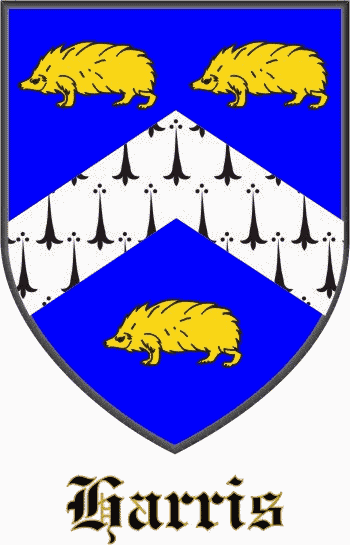
Sunday 13th April
2pm (New York), 7pm (Ire)
Our digital global family gatherings
Wales' First Minister Family Message
Our TEDx talk about family gatherings
Harris Family History
The Harris, Harries, Harriss, Haris, Herries, Harrison and Harry surnames all have the same origins, and derive from the personal name 'Harry' which is a diminutive of Henry which was introduced to Britain after the Norman Conquest of 1066.
Other origins of this surname include the Old Norse, Harri, as well as the Flemish personal name, Hariche. In Ireland, there are some examples, particularly in relation to County Mayo families, where both Harris and Harrison may be anglicised forms of the Gaelic Ó hEarchadha.
In American Jewish communities it is an Americanised form of any of various like-sounding Jewish names, and as such it is perhaps an anglicised form of Aaron.
As a surname it is patronymic – this means that the addition of the 's' ( or 'son') at the end of the name would indicate 'the son of Harry', Harry being a reference to an ancestor who would have lived some centuries ago. In England, hereditary surnames such as Harris, Harries and Harry, had been established by around 1400, but in Wales they only became evident between the 16th and 19th centuries.
In Wales, 'Harries' is a common version of the surname. Although recorded throughout the country, historically as a surname Harris/Harries was slightly more popular in south Wales. In some parts of south Wales, in particular in the county of Glamorgan, 'Harry' (without the 's' ending) was adopted as a surname when it became hereditary between the 16th and 19th centuries.
There are approximately 1,023,744 Harris family members around the world. It is estimated that the largest group of Harris family members lives in USA with 761,684 members. Around 863,900 members reside in England, 110,892 in Wales, 46,772 in Australia, 32,408 in Canada, 22,598 in South Africa, 6,383 in New Zealand, 40,722 in Ireland, and 27,803 in Scotland.
The 1891 census shows hat the Harris family name was predominant in London, Devon, Warwickshire, Gloucestershire, Worcestershire, Kent, Hampshire, Essex, and Somerset.
Early bearers of the surname include: Willelmo Harries, who appears in the poll tax of 1379 (Devizes, Wiltshire); Willelmo Herys, 1379 poll tax (Luton, Bedfordshire); Isabella Harreis, 1381 poll tax (Fairford, Gloucestershire); William Harrys, 1406 in Eynsham Cartulary (Oxfordshire); Lawrence Harryes, 1468 Fine Rolls (Hertfordshire); John Harys, 1540 (Saint Peter's parish register, Sandwich, Kent); George Haris, 1554 (Coleshill, Warwickshire); Ralfe Harris, 1575 (Isle of Sheppey parish register, Kent).
The most common Harris occupation in the UK in 1881 was agricultural labourer, followed by labourer and farmer.
Geographically, there are towns named Harris and Harriseahead (Staffordshire) in the United Kingdom from which some Harris families may have taken their name. Harris is located in Scotland on the largest island in the Outer Hebrides.
Notable people
- Rodney Harris CBE, FRCP, FRCPath (1932-2017) was a British geneticist, Fellow of the Royal College of Physicians (FRCP) and a Fellow of the Royal College of Pathologists (FRCPath).
- Iestyn Harris (b. 1976), rugby league and rugby union player, nicknamed 'the Welsh Wizard'. Born in Manchester to Welsh parents, he has played for both the Wales and Great Britain teams.
- Emmylou Harris (b. 1947), American singer, songwriter, and musician. A prolific artist, she has, among other honours, won 14 Grammys and has been inducted into the Country Music Hall of Fame.
- Howel Harris (1714–1773), prominent religious reformer who was one of the main leaders of the Welsh Methodist Revival, and the founder of the Presbyterian Church of Wales.
SOURCES
1881, 1891 Census
Homes of Family Names in Great Britain, H.B. Guppy, London 1890
International Genealogical Index, https://www.familysearch.org/search/collection/igi
The Oxford Dictionary of Family Names in Britain and Ireland, P.Hanks, Coats, McClure OUP 2016
1860 Lower, Mark A Patronymica Britannica: a dictionary of the family names of the United Kingdom, London: J.R Smith. Public Domain
1857 Arthur, William An Etymological Dictionary of Family and Christian Names. New York: Sheldon, Blakeman. Public Domain
https://convictrecords.com.au/ships/ann/1809
J.M.P
Select Audience
-
Public
Anyone on or off Wales101 -
Friends
Your friends on Wales101 -
Specific
Only show to some friends -
Only me
Only you can see your post
Tag People
-
Kane William
-
John Micky
-
John william
-
John Smith
-
John
Create Life Event

Brian

Katherine Short

Birgit Blume

Patricia Harris

Rhonda Harris

Sherry Hathcoat
Areas of Origin for Harris
Invite more Harris family members!
Write an email address and click 'Invite' to share this page with more members of the Harris tribe.
Log in or Register to invite others
Family Coat of Arms Generator
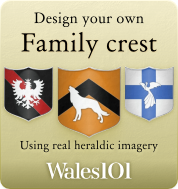
Why not see what your family crest could look like based on your own family characteristics?
Create CrestJoin the Irish Learning Rooms
Show off the Harris Family Crest…
Wear your crest with pride...plenty of products to choose from


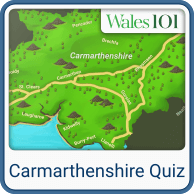

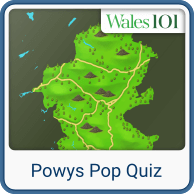
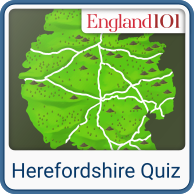
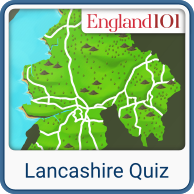
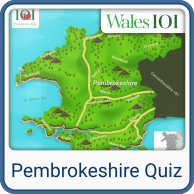
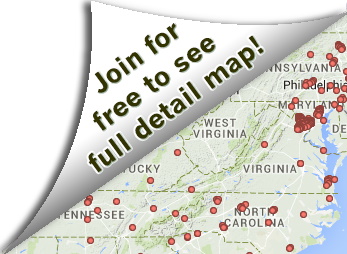
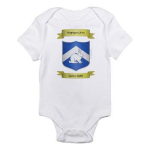
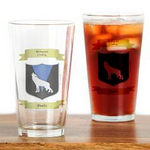
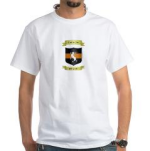
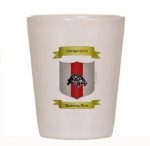
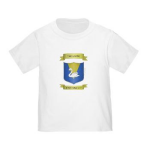
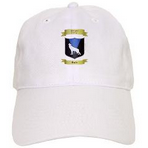
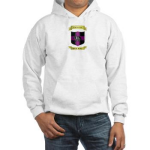
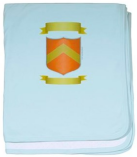
_(2).jpg)
Those in Ireland surnamed MARREN and MARRON began their time in the Emerald Isle with the surname of HARRIS. Their origins were as Brythonic Celts (a.k.a. Britons), hailing from what is now the English side of the Welsh border, near the castle town of Chepstow, Wales. They came to Ireland as paid mercenary archers in the service of the Norman adventurer, Richard de Clare, 2nd Earl of Pembroke, a.k.a. Strongbow.
Like so many of the “Normans” who settled in Ireland in the late 1100's, the Harris's were not Normans, per se, but English-speaking Celtic Britons from the Welsh border region, who also likely possessed a share of Anglo-Saxon ancestry in their DNA background as well. They were the Celts who in previous centuries were Romanised, civilised and Latin speaking, the same breed of Celts of which came Saint Patrick, the patron saint of Ireland.
Britons from the Welsh Marches (The Welsh border area of England) were well-regarded for their skills with a crossbow. Thus, they were often used as "hired guns" to supplement most of the armies of Western Europe at that time. Their adeptness at archery is attributed to two reasons. The first being that since they hailed from a volatile border region perpetually at war, there was a sense of constant danger from invasion by Welsh marauders. Consequently, archery practice was mandatory, twice per day, six days a week for every adult male. Secondly, there is a unique branch of Yew tree indigenous to the Welsh Marches, the wood of which could be crafted into an especially lightweight yet tense bow, capable of launching arrows at a considerable distance and with high accuracy.
Meanwhile, in the last quarter of the Twelfth Century there was clan unrest in neighbouring Ireland. A dispute grew over the years between the McMurrough’s, Chiefs of Leinster at the time, and the O’Rourke’s of neighbouring Meath. For years each leader of their respected clan claimed the title of High King of Ireland. A subsequent argument over a women turned this quarrel over kingship into outright warfare. The O’Rourke’s secured the support of the powerful O’Connor clan of Connaught, leaving McMurrough outgunned and outnumbered.
Consequently, McMurrough sought assistance from Norman mercenaries in England and Wales. de Clare made a financial agreement to assist the McMurrough Clan of Leinster in their war with the O'Rourke's and O'Connor’s. de Clare hired hundreds of skilled bowmen like the original Marren ancestor, Mr Harris. Mr Harris may have had the first name Walter, or have been the son of a Walter Harris, as there are strong genetic links between those surnamed Marren, Marron and Harris with others bearing the last names: Waters, Watters, Watts, Watkins and Watson, all of which mean "son of Walter." Indeed, the genetic codes are so similar, geneticists believe there is a family link to Marren's (as well as those who spell the name Marron) and those bearing the surnames Waters, Watts, Watkins, etc in Ireland and in the Welsh Marches today. Other family names bearing genetic links to the Marren/Marron, Waters/Watters/Watkins/Watts and Harris surnames are Frain/Freyne and McGivney/Givney in Ireland, as well as Autry, Norton and Crowe usually found in the Harris family point of origin in the Welsh Marches, the South West of England and in South Wales today.
English-speaking Britons served in what would be similar to the enlisted ranks of the Norman armies, while French-speaking descendants of actual Normans would have been the nobility who made up the “Officer Corps,” riding on horseback. McMurrough's gamble was successful in the fact that by hiring the Normans under de Clare, this led his clan to win the war for Leinster over O'Rourke and O'Connor. However, McMurrough paid a high price. Much of the most fertile farmland in McMurrough territory in what is now known today as counties Wexford, Waterford and Carlow was carved up and given over to the Norman mercenaries as tribute.
Based on their rank every officer and enlisted man was given a certain amount of arable land. Records of the time indicate the original Mr Harris, an archer, received a small plot of land for his service, upriver from Enniscorthy in County Wexford. It was near the Carlow border, in the Norman territory controlled by the noble Prendergast family. Today that plot of land is near the town of Bunclody, County Wexford. Till this day the surname Harris remains prominent in that region, as also does the family names Waters and Watts who share similar DNA.
As the centuries passed, the Normans and native Irish Gaels intermarried. They learned to live together as neighbours and see themselves all as one Irish people. Indeed, it is said that the Normans became so Hibernicised they eventually became "more Irish than the Irish." It was some two-hundred years after their arrival that one of the descendants of the original Mr Harris, the Twelfth Century mercenary archer, a male heir was born around 1400 AD. His name was Mearan Harris. He was named after the Irish saint born in 565 AD, Saint Mirin of Bangor, Ulster. St Mirin, along with St Columba helped to convert the Scots to Christianity.
Sometime in the mid-1400s Mearan Harris led a large band of his extended family including those named Waters/Watters/Watts, (Mc)Givney and Frain/Freyne on a resettlement journey from County Wexford, where the Harris family served under the Prendergast's, to County Louth/County Monaghan border area. It was there that they would now oblige themselves to another Norman family, the Taaffe's. This journey northward from Wexford was so celebrated that sometime in the late 1400’s a branch of Mearan Harris' descendants changed their surname in his honour to O'Mearain. Many of these same descendants still reside in the Monaghan, Louth and Armagh area, where they today spell their surname, Marron.
In 1610 a branch of these O'Mearain's were once again on the march. This time, however, they moved westward under the oblige of one of the lesser Taaffe nobles who acquired a large area of territory from the O’Hara clan. This land acquisition was located in the southern reaches of County Sligo. An O'Mearain and his extended family, including some of the Waters/Watters/Watts, Frain and (Mc)Givney cousins also accompanied the Marren’s. They were led by Jasper Brett, Lord Taaffe's man charged with scouting the newly gained land for the Taaffe family. It was here the O'Mearain family settled permanently in County Sligo. Thus, the surname Marren (spelled MarrEn, not MarrOn) is now associated with the border areas of Sligo and northern Mayo, where it is almost exclusively found today. The surnames Waters/Watters/Watts, Frain and (Mc)Givney are also found abundantly in this area.
There were several other families with Norman histories and ties to the Taaffe’s who accompanied the Marren’s and Jaspar Brett on this journey from Monaghan and Louth to South Sligo. They included those surnamed Stenson, Cooke, Jones and Maye, to name a few. These surnames are also common in the South Sligo border area near County Mayo, where they’re often found till this day.